ACT ONE
Bartolo, an elderly doctor who is also the guardian of Rosina, a rich young lady, lives in a house that looks out onto a square in the city of Seville. It is dawn. Fiorello, Count Almaviva’s servant, is gathering a group of musicians, in the strictest silence, underneath the girl’s window. The Count comes on and sings a serenade to Rosina. However, the young lady does not show any sign of life and the Count, greatly discouraged, sends the musicians away. Left alone, Almaviva waits for Rosina to come out onto her balcony in order to speak to her. Nothing, therefore, could be more unwelcome than the arrival in the square of a man gaily carolling about the joys of life. However, every cloud has a silver lining: the Count recognizes the interloper as Figaro, the barber, a friend and servant of his, to whom he confides that he has come to Seville in order to be near his beloved Rosina. Figaro, who is barber and factotum in Bartolo’s house, promises to help the Count. Just at the moment the balcony window opens and Rosina peers out, letting a letter drop into the street; just then her guardian walks out of the front door and, seeing the letter, looks up and asks her what it is. She tells him a fib, pretending that it is a piece of music. The Count quickly snatches it up; Bartolo, at once scenting that he has been tricked, turns back into the house saying that he will have the window walled up. In her letter, Rosina invites her admirer to meet her, although Bartolo keeps her locked up. When Figaro has finished reading the letter to the Count, he adds that the greedy old doctor has got his eye on the girl’s money, and is thinking about marrying her himself. In fact, Bartolo is going out even now with a view to fixing his wedding for that very day; Don Basilio, an old crony of his and the girl’s music teacher, will help him.
Rosina has been left alone in the house and Figaro urges the Count to sing one last serenade. To test the girl’s sincerity, the Count decides not to reveal his true identity and pretends to be a poor boy named Lindoro. Rosina eagerly returns Lindoro’s amorous declarations, but, when someone suddenly comes into the house, she is forced to withdraw in a hurry. The Count is dying to see the girl and promises Figaro a rich reward if he can contrive to get him into the doctor’s house. The barber immediately thinks of a scheme: the Count must pretend to be a drunken soldier, and, equipped with false billeting papers, force his way into Bartolo’s house to spend the night there. The Count enthusiastically approves of this scheme, whilst Figaro, thinking of his reward, is bursting with joy.
Meanwhile, in a room in Bartolo’s house, Rosina, who has decided to marry Lindoro at any price, is thinking about how she can convey another letter to him through Figaro, who has come to say “Hello!” to her. Their conversation is soon interrupted, however, by the arrival of Bartolo and Basilio, who are discussing in worried tones the arrival of Count Almaviva in town. Bartolo knows that the Count is in love with Rosina; Basilio suggests that slandering him would be a good method of hurting him, but Bartolo prefers, rather, to hurry on the preparations for his marriage. When the two conspirators have left, Figaro and Rosina come back on. The barber reassures Rosina that Lindoro really loves her and Rosina, who was all agog to hear just this, gives the barber the letter that she has just written to Lindoro. When Figaro has gone out, Bartolo comes into the room and, having discovered the trick played upon him with the first letter, punishes Rosina by locking her into her room. Someone knocks at the door and Berta, the housekeeper, goes to open it. It is a drunken soldier, or rather, Count Almaviva pretending to be one. Whilst he is showing Bartolo the letter billeting him at the doctor’s house, Rosina comes in and recognizes that the supposed soldier is, in fact, her beloved Lindoro. Using his “drunkenness” as an excuse, the “soldier” makes advances to the girl whilst the infuriated Bartolo orders him to go away. The Count refuses and, during the ensuing hurly-burly, manages to pass Rosina a letter which the girl hides about her person; when Bartolo insists on seeing it, she skilfully substitutes a laundry list. Fooled again! Rosina pretends to cry over the cruel treatment unjustly meted out to her, and the Count goes so far as to threaten to draw his sword.
Berta summons help and Figaro comes in, and tries to calm the Count down. All in vain: a police officer bursts into the house whit his men, having heard the uproar from outside in the street, and having listened to what everyone in the household has to say, is preparing to arrest the soldier, who, however, in this emergency, reveals his true identity to the officer, but only to him. Nobody can understand why the officer now treats the soldier deferentially, and does not arrest him. Everyone is stunned – pleasantly or otherwise – by this whirling roundabout of events.
ACT TWO
In a room in Bartolo’s house, containing a piano, the doctor welcomes Don Alonso, a music teacher (none other that the Count Almaviva in another disguise) who introduces himself as replacing Don Basilio, who is unwell. Bartolo does not recognize the Count, but, as the Count sees that the old man in suspicious of him, he falls back on a ruse: he pretends to have got hold of a letter written by Rosina to the Count, and proposes that Bartolo show it to the girl and tell her that Almaviva has subsequently given it to another girl friend of his to give her a good laugh. Rosina duly comes in for her lesson and, immediately recognizing her beloved Lindoro in the mysterious Don Alonso, readily joins in the deception.
During the singing lesson, Bartolo goes to sleep and the lovers take advantage of this to exchange loving expressions. When Bartolo wakes up he complains that he does not like the “modern” music of the lesson aria, and proceeds to hum another, old-fashioned one more to his taste. Whilst all this is going on Figaro arrives to shave Bartolo. Bartolo would like to put it off until later, but Figaro forces him into agreeing to it and, having been given the keys in order to get supplies from the linen cupboard, he slips the balcony key off the ring and into his pocket. Before Figaro can begin to shave Bartolo, however, in comes Don Basilio, in perfect health and completely in the dark about all that has been going on. The Count saves the situation by persuading Basilio that he looks far from well and that he would be well-advised to go straight home to bed. Bartolo willingly participates in this trick because Alonso has confided in him that Basilio knows nothing about the letter and might, therefore, interfere with their schemes. Once Basilio has left and Figaro has begun to shave Don Bartolo, the loving couple arranges to meet at midnight: Figaro has the keys to the balcony, so Rosina will be able to get out and run away. Meanwhile, however, Bartolo has crept up to them unawares and has overheard enough to guess that they are plotting something: he explodes in a furious rage. Left alone, Bartolo decides to consult Basilio about drawing up the marriage contract that very evening, and meanwhile Berta complains that love has turned the house upside-down. Rosina, on her part, is now convinced that Lindoro has betrayed her trust, because Bartolo, remembering that in his pocket he has the letter that Alonso gave him, shows it to her, adding that Figaro and Lindoro are planning to marry her off to a man whom she has never seen, the Count Almaviva. Later, Figaro and the Count, soaked to the skin by a torrential downpour of rain, climb a ladder up to the window of Rosina’s room, but the girl greets them with scorn. However, when it is revealed to her that Lindoro and the Count are one and the same person, her heart is filled with joy. As the three are about to run away together, they realize that the ladder has been taken away. Basilio, meanwhile, has come to the house with a notary, an acquaintance of Figaro’s, who makes no objection to marrying Rosina to the Count. Basilio is easily persuaded to act as witness by the gift of a ring and the threat of a pistol. Bartolo, arriving on the scene accompanied by the police, is therefore too late, and the idea of stealing the ladder is seen to have been a vain precaution: true love has won the day. When it comes to the point, even old Bartolo can do no more than give them his blessing: he is especially pleased to do this when he discovers that the Count is rich enough not to require Bartolo to hand over Rosina’s dowry.
Place: Seville, Spain
Time: 18th century
Act 1
The square in front of Bartolo's house
In a public square outside Bartolo's house a band of musicians and a poor student named Lindoro are serenading, to no avail, the window of Rosina ("Ecco, ridente in cielo"; "There, laughing in the sky"). Lindoro, who is really the young Count Almaviva in disguise, hopes to make the beautiful Rosina love him for himself – not his money. Almaviva pays off the musicians who then depart, leaving him to brood alone. Rosina is the young ward of the grumpy, elderly Bartolo and she is allowed very little freedom because Bartolo plans to marry her once she is of age and thus appropriate her not inconsiderable dowry.
Figaro approaches singing (Aria: "Largo al factotum della città"; "Make way for the factotum of the city"). Since Figaro used to be a servant of the Count, the Count asks him for assistance in helping him meet Rosina, offering him money should he be successful in arranging this. (Duet: "All'idea di quel metallo"; "At the idea of that metal"). Figaro advises the Count to disguise himself as a drunken soldier, ordered to be billeted with Bartolo, so as to gain entrance to the house. For this suggestion, Figaro is richly rewarded.
A room in Bartolo's house with four doors
The scene begins with Rosina's cavatina, "Una voce poco fa" ("A voice a little while ago"). (This aria was originally written in the key of E major, but it is sometimes transposed a semitone up into F major for coloratura sopranos to perform, giving them the chance to sing extra, almost traditional, cadenzas, sometimes reaching high Ds or even Fs.)
Knowing the Count only as Lindoro, Rosina writes to him. As she is leaving the room, Bartolo and Basilio enter. Bartolo is suspicious of the Count, and Basilio advises that he be put out of the way by creating false rumours about him (this aria, "La calunnia è un venticello" – "Calumny is a little breeze" – is almost always sung a tone lower than the original D major).
When the two have gone, Rosina and Figaro enter. Figaro asks Rosina to write a few encouraging words to Lindoro, which she has actually already written. (Duet: "Dunque io son...tu non m'inganni?"; "Then I'm the one...you're not fooling me?"). Although surprised by Bartolo, Rosina manages to fool him, but he remains suspicious. (Aria: "A un dottor della mia sorte"; "To a doctor of my class").
Count Almaviva, disguised as a soldier and pretending to be drunk, enters the house and demands to be quartered there. In fear of the drunken man, Berta the housekeeper rushes to Bartolo for protection. Bartolo tells the "soldier" that he (Bartolo) has an official exemption which excuses him from the requirement to quarter soldiers in his home. Almaviva pretends to be too drunk and belligerent to understand, and dares Bartolo to brawl. While Bartolo searches his cluttered desk for the official document which would prove his exemption, Almaviva whispers to Rosina that he is Lindoro in disguise, and passes a love-letter to her. Bartolo suspiciously demands to know what is in the piece of paper in Rosina's hands, but she fools him by handing over her laundry list. Bartolo and the Count argue loudly. Basilio enters; then Figaro, who warns that the noise of the argument is rousing the whole neighborhood. Finally, the noise attracts the attention of the Officer of the Watch and his troops, who crowd into the room. Bartolo demands that the Officer arrest the "drunken soldier". The Officer starts to do so, but Almaviva quietly reveals his true identity to the Officer, and he (the Officer) backs off and stands down. Bartolo and Basilio are astonished and mystified; Figaro laughs quietly at them. (Finale: "Fredda ed immobile, come una statua"; "Cold and still, just like a statue"). The confusion intensifies and causes everyone to suffer headaches and auditory hallucinations ("Mi par d'esser con la testa in un'orrida fucina; dell'incudini sonore l'importuno strepitar."; "My head seems to be in a fiery forge: the sound of the anvils deafens the ear.")
Act 2
A room in Bartolo's house with a piano
Almaviva again appears at the doctor's house, this time disguised as a priest who is also a singing tutor and pretending to act as substitute for the supposedly ailing Basilio, Rosina's regular singing teacher. Initially, Bartolo is suspicious, but does allow Almaviva to enter when the Count gives him Rosina's letter. He describes his plan to discredit Lindoro whom he believes to be one of the Count's servants, intent on pursuing women for his master. While Almaviva pretends to give Rosina her singing lesson, Figaro arrives to shave Bartolo. Bartolo demurs, but Figaro makes such a scene he agrees, but in order not to leave the supposed music master alone with Rosina, the doctor has Figaro shave him right there in the music room. When Basilio suddenly appears, he is bribed by a full purse from Almaviva and persuaded to leave again, with much discussion of how ill he looks. (Quintet: "Don Basilio! – Cosa veggo!"; "Don Basilio! – What do I see?"). Figaro begins to shave Bartolo, but Bartolo overhears the lovers conspiring, and angrily drives everybody away.
The scene returns to the location of act 1 with a grill looking out onto the square. Bartolo orders Basilio to have the notary ready to marry him to Rosina that evening. He also explains his plot to come between the lovers. Basilio leaves and Rosina arrives. Bartolo shows Rosina the letter she wrote to "Lindoro", and persuades her that this is evidence that Lindoro is merely a flunky of Almaviva and is toying with her at Almaviva's behest. Rosina believes him and agrees to marry him.
During an instrumental interlude, the music creates a thunder storm to indicate the passage of time. The Count and Figaro climb up a ladder to the balcony and enter the room through a window. Rosina shows Almaviva the letter and accuses him of betraying her. Almaviva reveals his identity and the two reconcile. While Almaviva and Rosina are enraptured by one another, Figaro keeps urging them to leave. Two people are heard approaching the front door, who later turn out to be Basilio and the notary. However, when the Count, Rosina, and Figaro attempt to leave by way of the ladder, they discover it has been removed. The marriage contract requires two witnesses; Figaro is one, but another is needed. The Count makes Basilio an offer he can't refuse: the choice of accepting a bribe and being a witness to his marriage or receiving two bullets in the head (an easy choice, Basilio says). He and Figaro witness the signatures to a marriage contract between the Count and Rosina. Bartolo barges in, accompanied by the Officer and the men of the watch, but too late; the marriage is already complete. The befuddled Bartolo (who was the one who had removed the ladder) is pacified by being allowed to retain Rosina's dowry. The opera concludes with an anthem to love ("Amor e fede eterna, si vegga in noi regnar!").


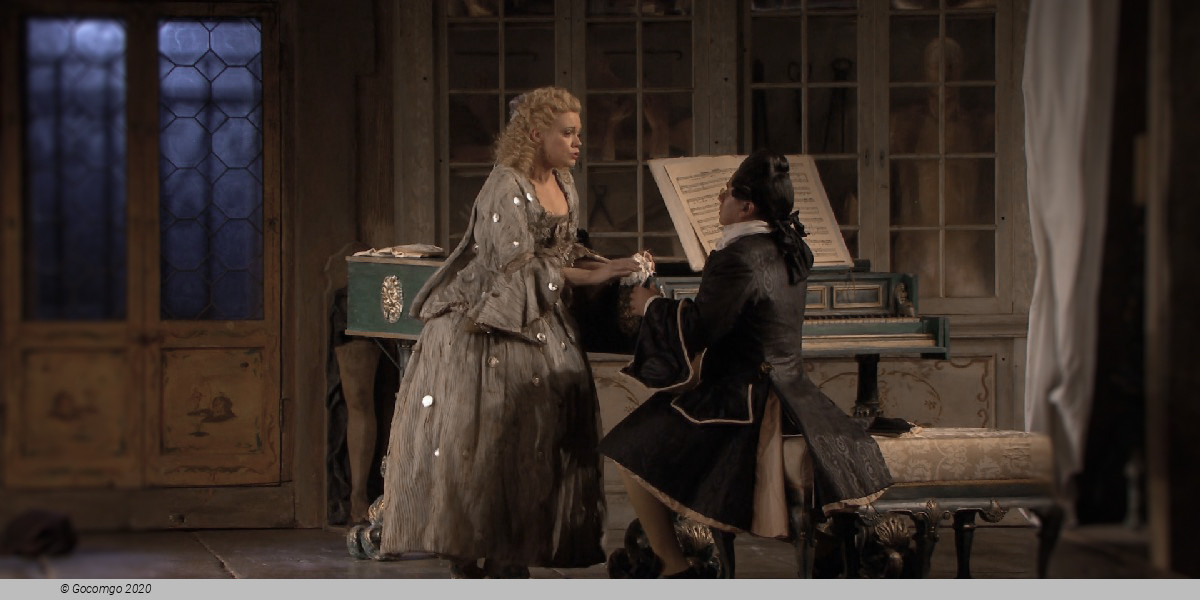
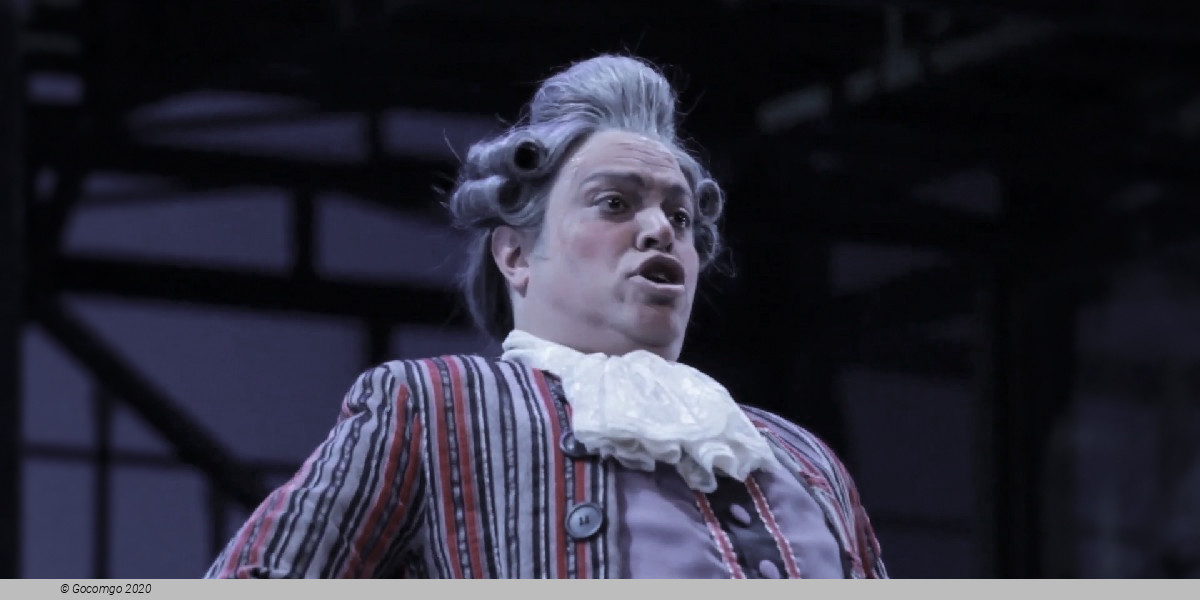
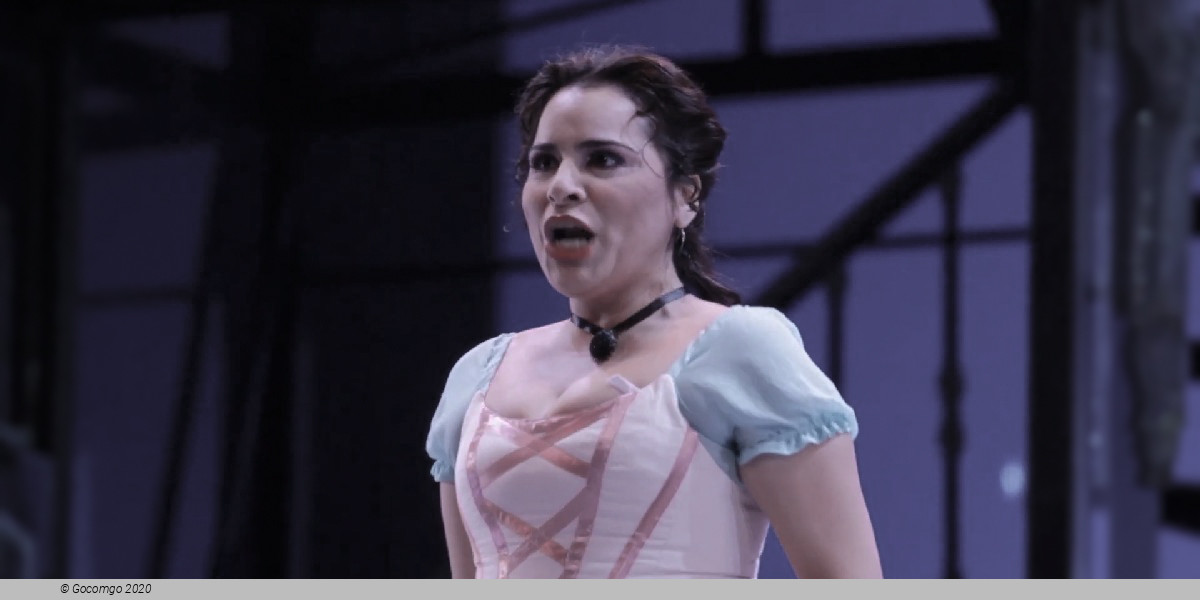
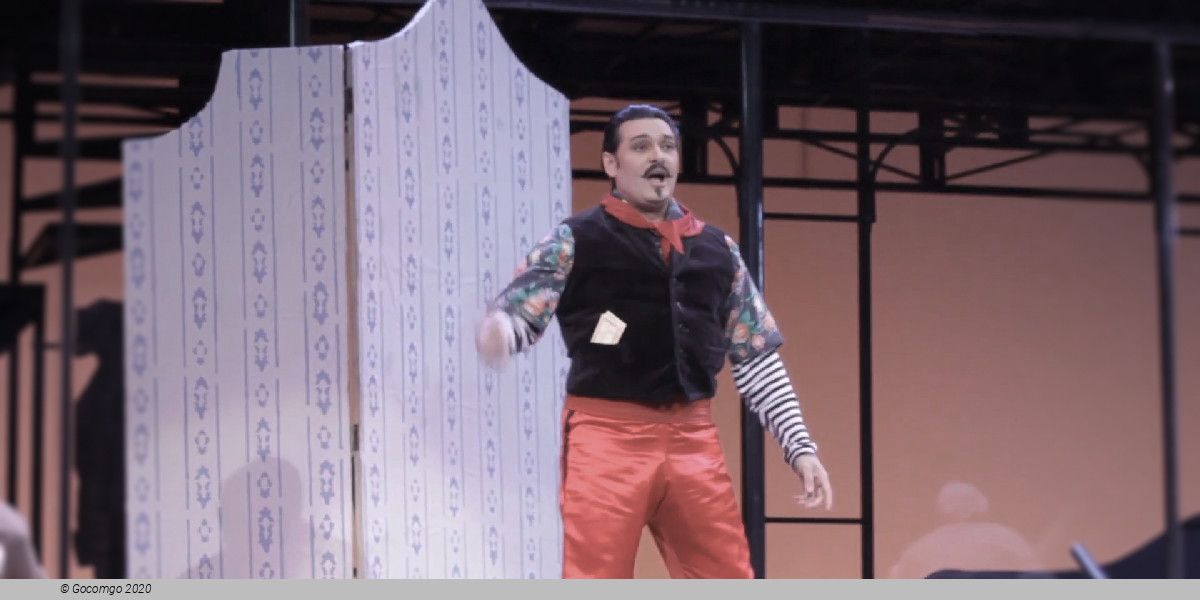
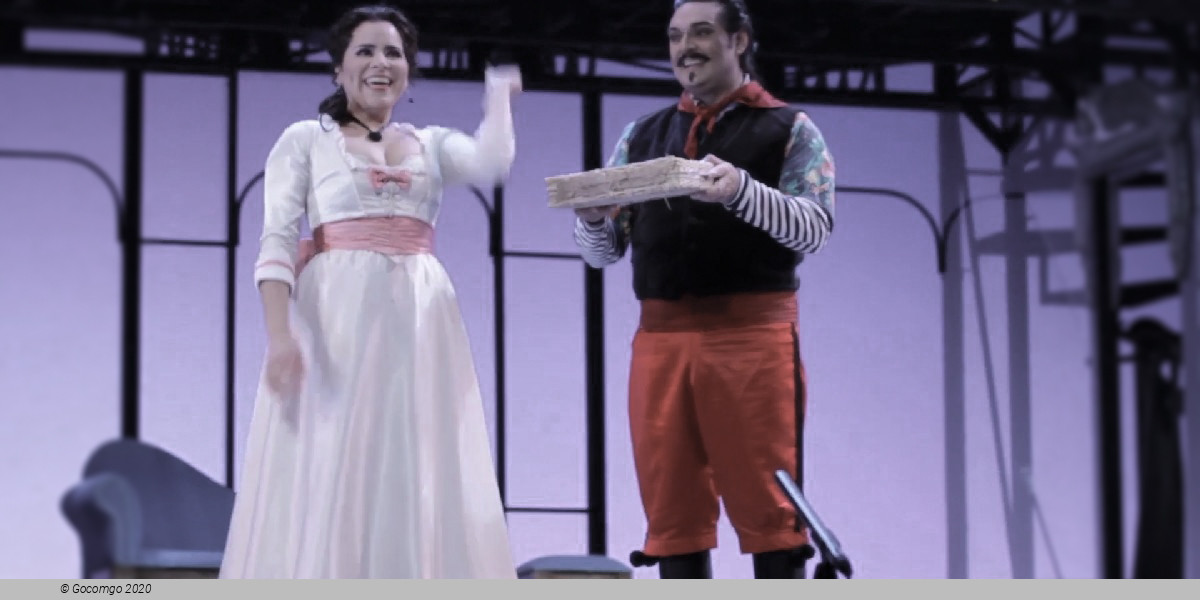
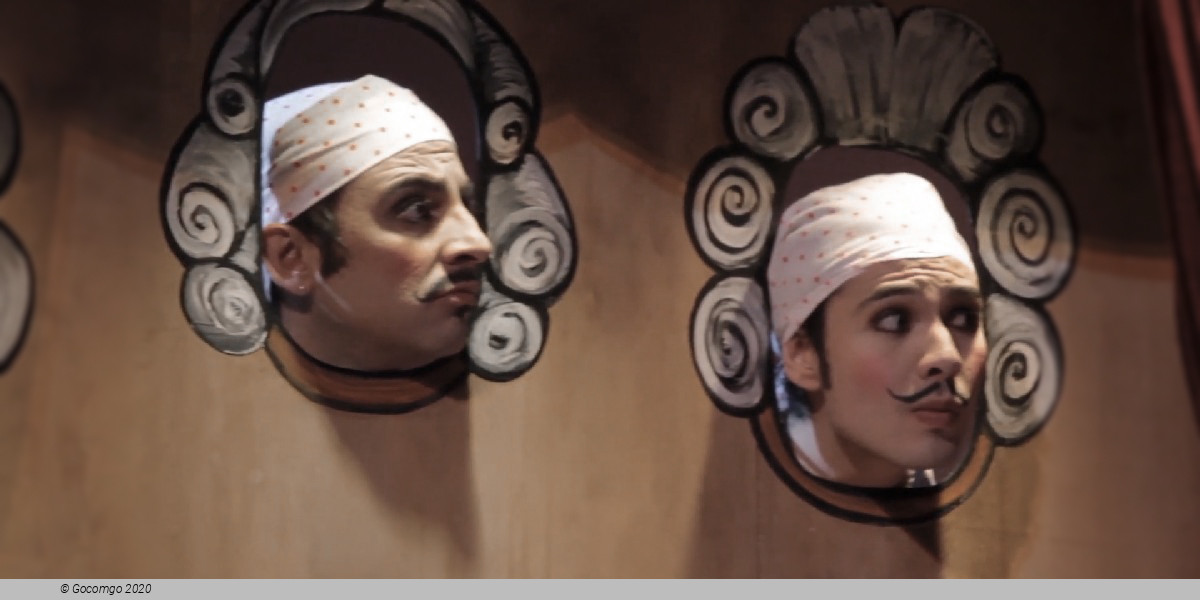
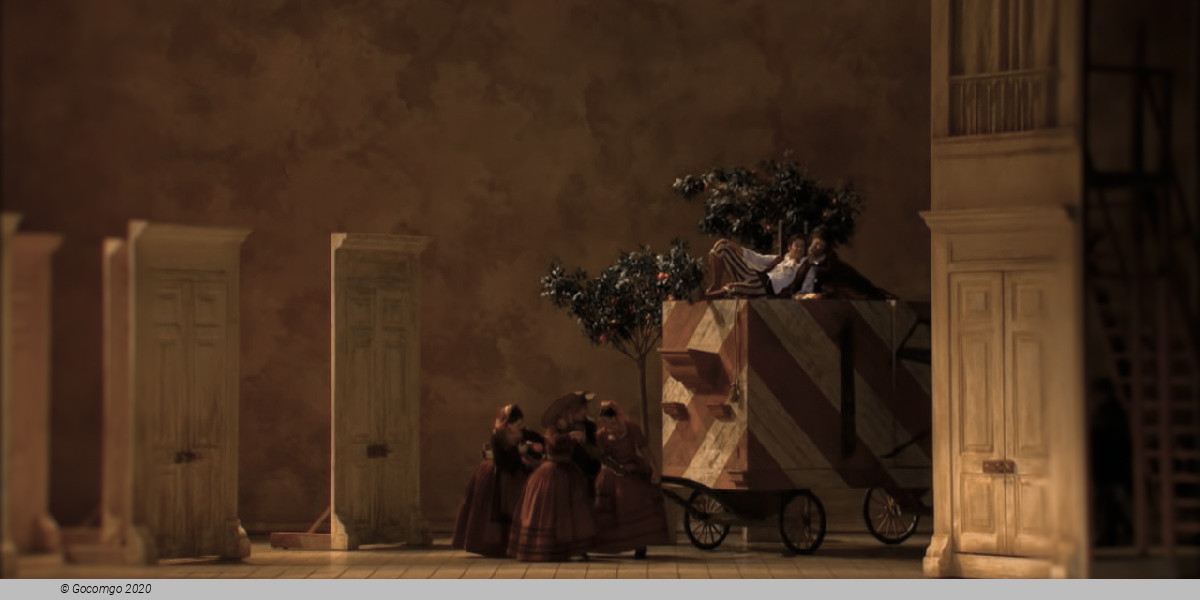
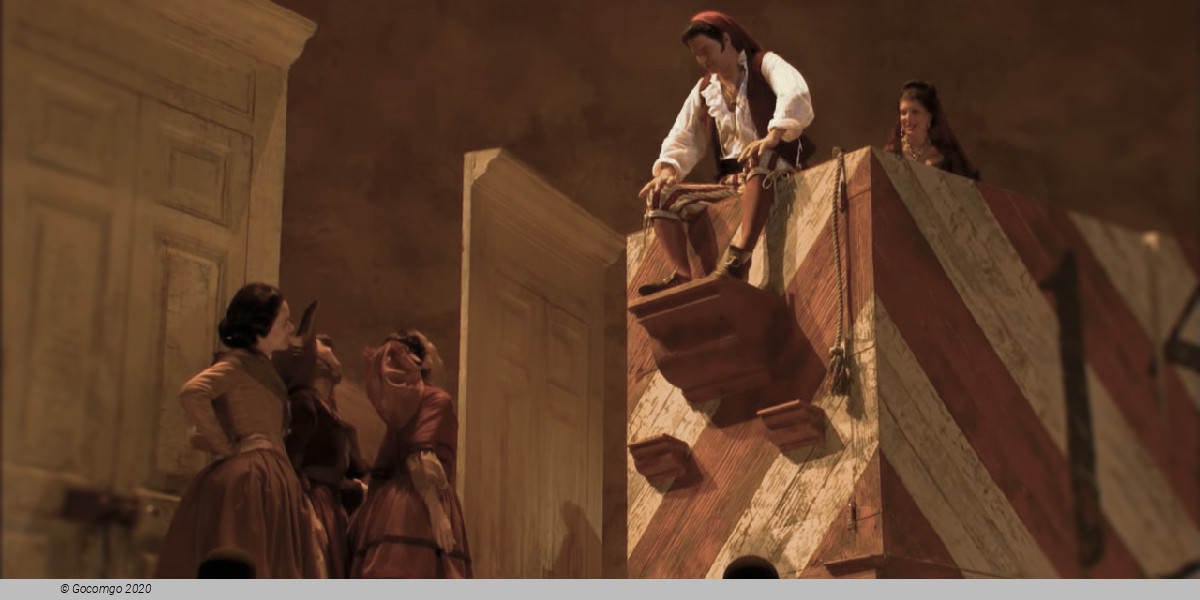
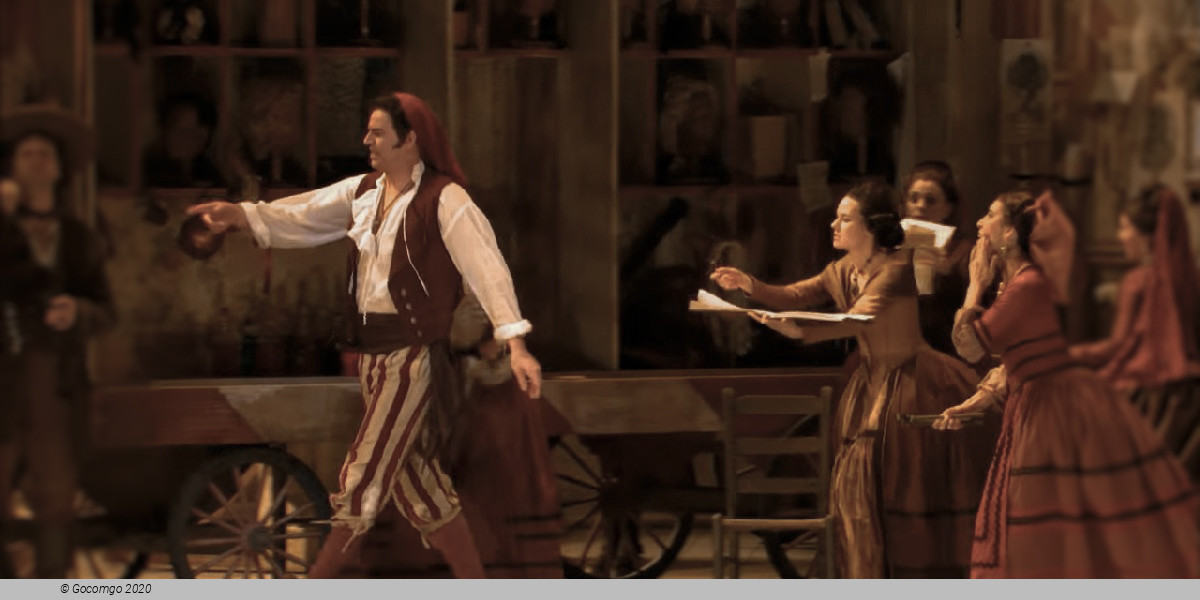
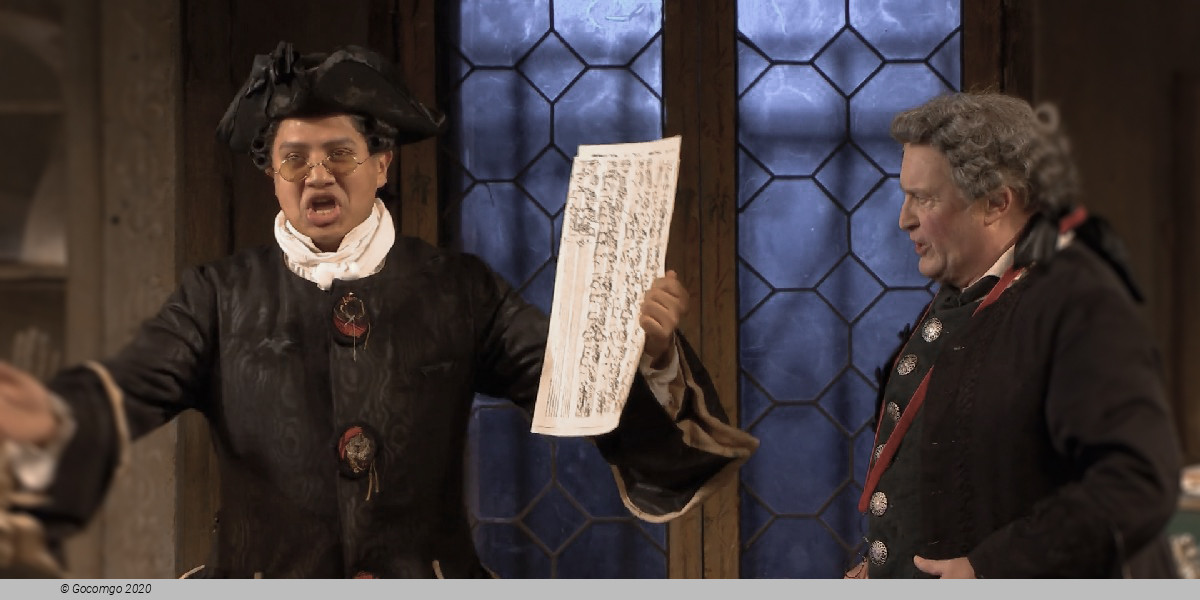
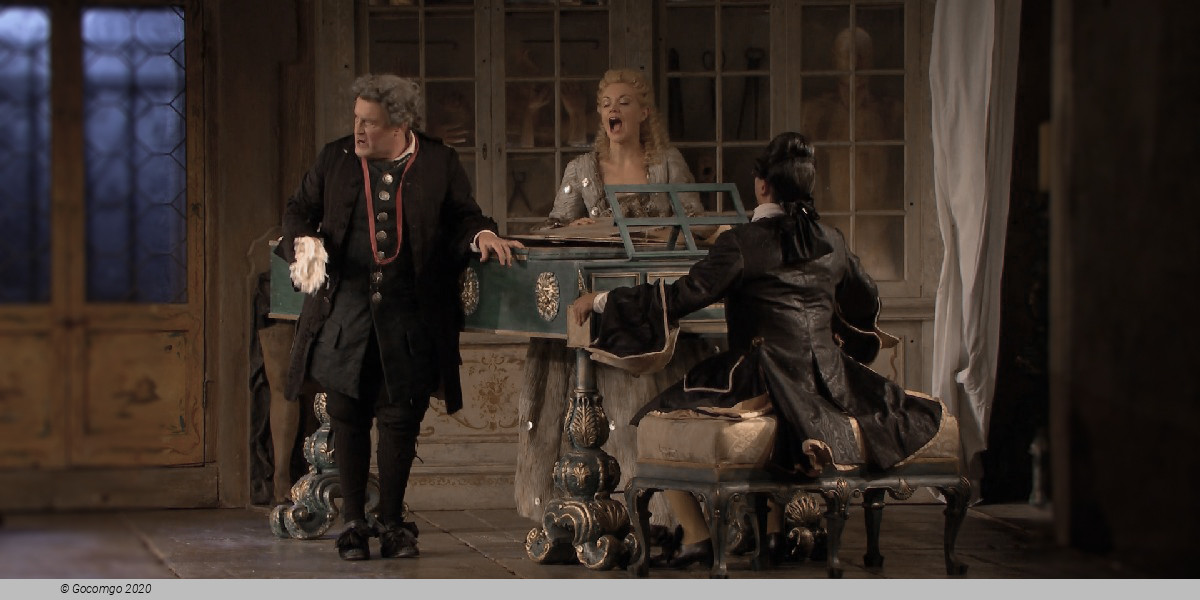
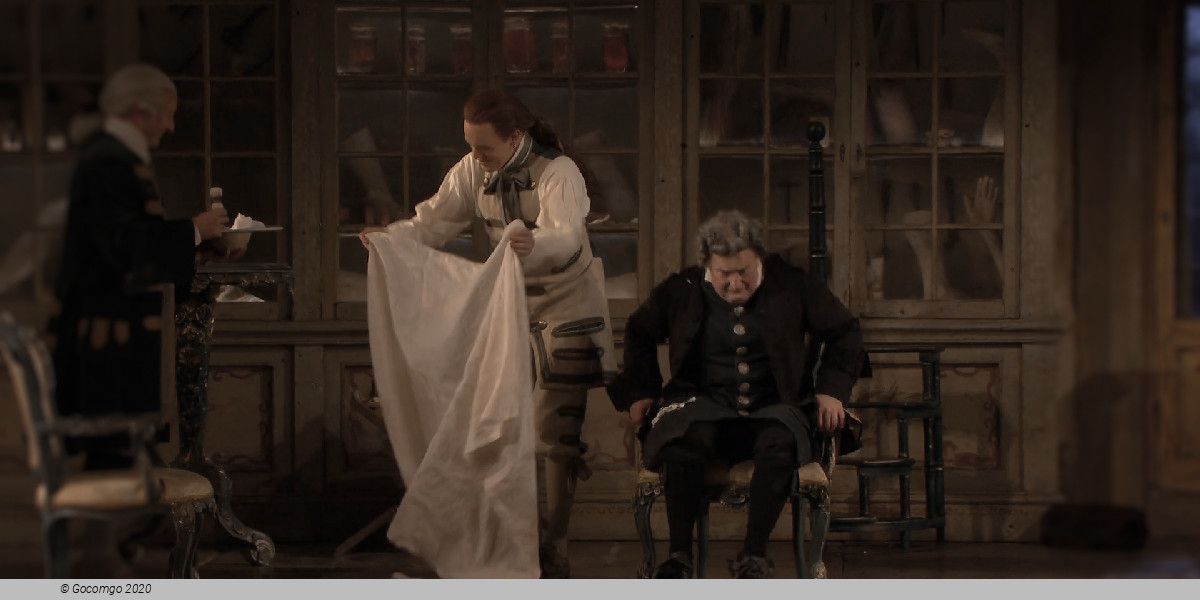
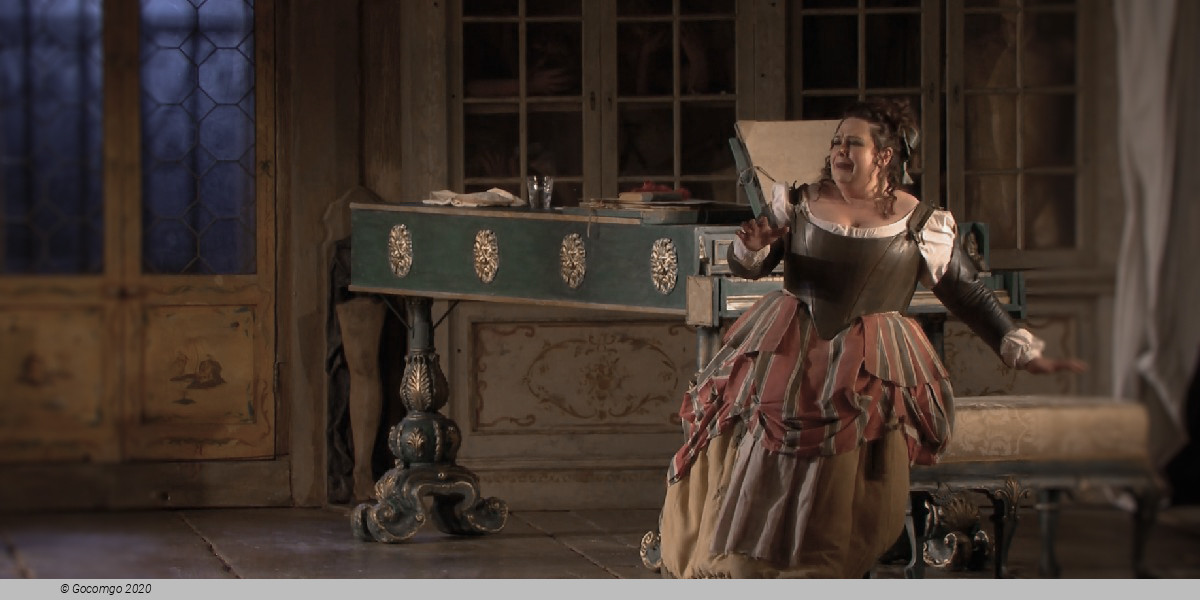
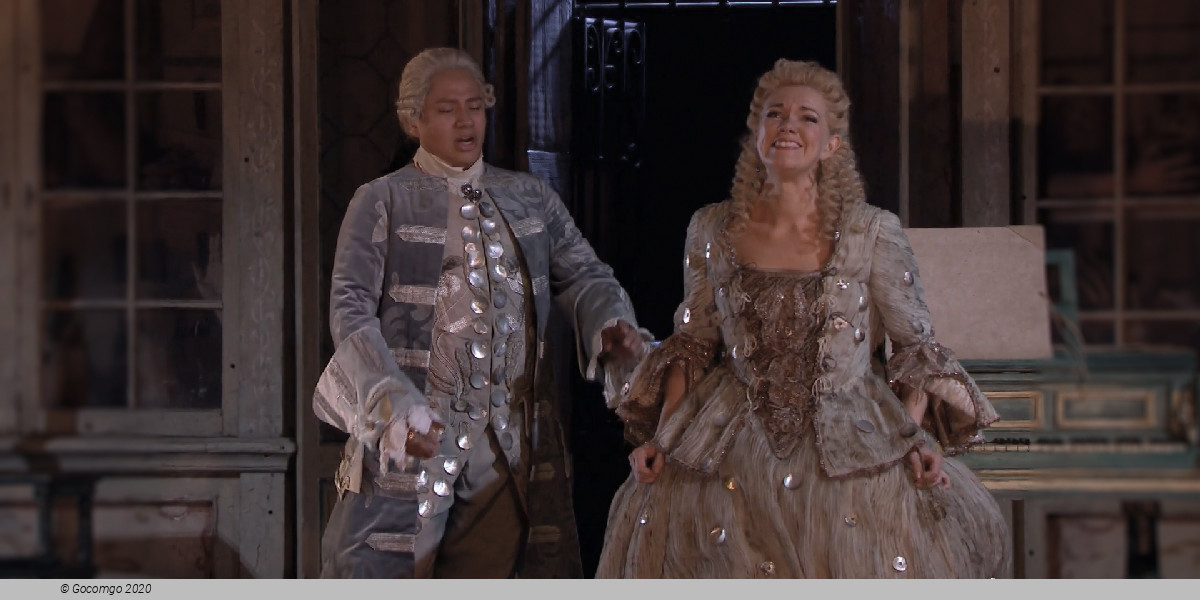
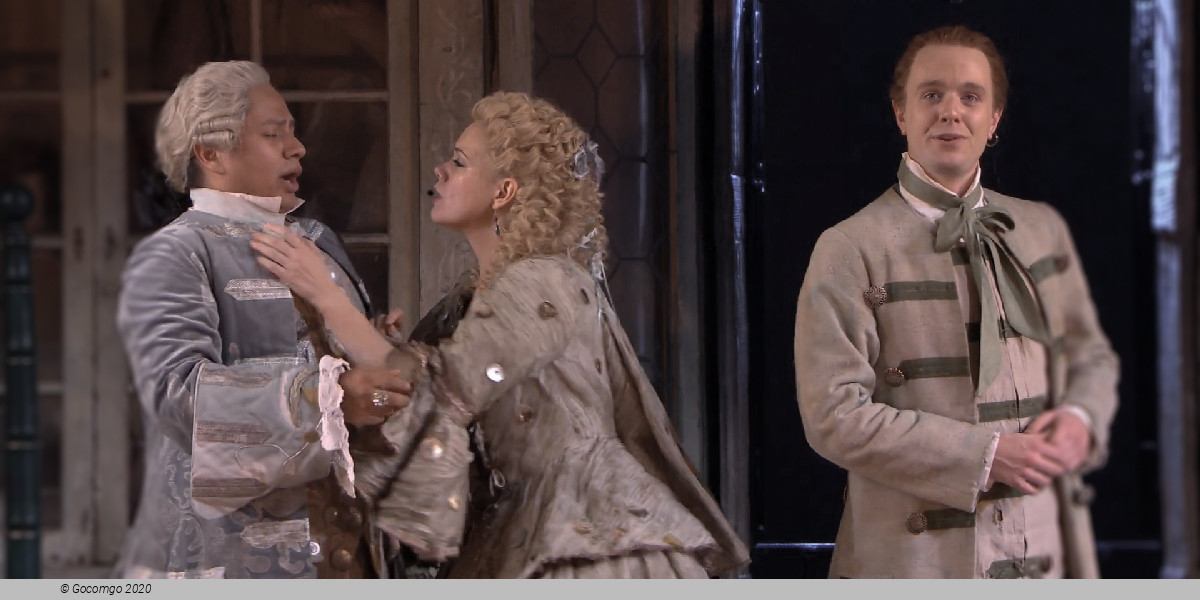
 Piazza Lazzarini, 1
Piazza Lazzarini, 1